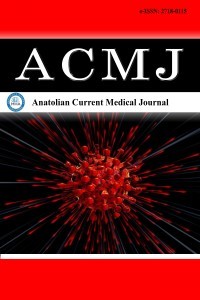1.
Hammond ME, Hayes DF, Dowsett M, et al. American Society of Clinical Oncology/College Of American Pathologists guideline recommendations for immunohistochemical testing of estrogen and progesterone receptors in breast cancerJ Clin Oncol. 2010;28(16):2784-2795. doi:10.1200/JCO.2009.25.6529
2.
Group EBCTC. Relevance of breast cancer hormone receptors and other factors to the efficacy of adjuvant tamoxifen: patient-level meta-analysis of randomised trials. Lancet. 2011;378(9793):771-784. doi:10.1016/S0140-6736(11)60993-8
3.
Nordenskjöld A, Fohlin H, Fornander T, Löfdahl B, Skoog L, Stål O. Progesterone receptor positivity is a predictor of long-term benefit from adjuvant tamoxifen treatment of estrogen receptor positive breast cancer.Breast Cancer Res Treat. 2016;160(2):313-322. doi:10.1007/s10549-016-4007-5
4.
Finn RS, Martin M, Rugo HS, et al. Palbociclib and letrozole in advanced breast cancer. N Engl J Med. 2016;375(20):1925-1936. doi:10.1056/NEJMoa1607303
5.
Hortobagyi GN, Stemmer SM, Burris HA, et al. Updated results from MONALEESA-2, a phase III trial of first-line ribociclib plus letrozole versus placebo plus letrozole in hormone receptor-positive, HER2-negative advanced breast cancerAnn Oncol. 2018;29(7):1541-1547. doi: 10.1093/annonc/mdy155
6.
Goetz MP, Toi M, Campone M, et al. MONARCH 3: abemaciclib as ınitial therapy for advanced breast cancer.J Clin Oncol. 2017;35(32):3638-3646. doi:10.1200/JCO.2017.75.6155
7.
Gao JJ, Cheng J, Bloomquist E, et al. CDK4/6 inhibitor treatment for patients with hormone receptor-positive, HER2-negative, advanced or metastatic breast cancer: a US Food and Drug Administration pooled analysis.Lancet Oncol. 2020;21(2):250-260. doi:10.1016/S1470-2045(19) 30804-6
8.
Spring LM, Zangardi ML, Moy B, Bardia A. Clinical management of potential toxicities and drug interactions related to cyclin-dependent kinase 4/6 inhibitors in breast cancer: practical considerations and recommendations.Oncologist. 2017;22(9):1039-1048. doi:10.1634/theoncologist.2017-0142
9.
Prat A, Cheang MC, Martín M, et al. Prognostic significance of progesterone receptor-positive tumor cells within immunohistochemically defined luminal A breast cancer.J Clin Oncol. 2013;31(2):203-209. doi:10.1200/JCO.2012.43.4134
10.
Cardoso F, Senkus E, Costa A, et al. 4<sup>th</sup> ESO-ESMO ınternational consensus guidelines for advanced breast cancer (ABC 4)†.Ann Oncol. 2018;29(8):1634-1657. doi:10.1093/annonc/mdy192
11.
Van Asten K, Slembrouck L, Olbrecht S, et al. Prognostic value of the progesterone receptor by subtype in patients with estrogen receptor-positive, HER-2 negative breast cancer.Oncologist. 2019;24(2):165-171. doi:10.1634/theoncologist.2018-0176
12.
Bae SY, Kim S, Lee JH, et al. Poor prognosis of single hormone receptor- positive breast cancer: similar outcome as triple-negative breast cancer.BMC Cancer. 2015;15:138. doi:10.1186/s12885-015-1121-4
13.
Goldhirsch A, Winer EP, Coates AS, et al. Personalizing the treatment of women with early breast cancer: highlights of the St Gallen International Expert Consensus on the primary therapy of early breast cancer 2013.Ann Oncol. 2013;24(9):2206-2223. doi:10.1093/annonc/mdt303
14.
Xiao Y, Li J, Wu Z, Zhang X, Ming J. Influence of progesterone receptor on metastasis and prognosis in breast cancer patients with negative HER-2.Gland Surg. 2022;11(1):77-90. doi:10.21037/gs-21-677
15.
Arciero CA, Guo Y, Jiang R, et al. ER<sup>+</sup>/HER2<sup>+</sup>breast cancer has different metastatic patterns and better survival than ER<sup>-</sup>/HER2<sup>+</sup>breast cancer.Clin Breast Cancer. 2019;19(4):236-245. doi:10.1016/j.clbc.2019. 02.001
16.
Elledge RM, Green S, Pugh R, et al. Estrogen receptor (ER) and progesterone receptor (PgR), by ligand-binding assay compared with ER, PgR and pS2, by immuno-histochemistry in predicting response to tamoxifen in metastatic breast cancer: a Southwest Oncology Group Study.Int J Cancer. 2000;89(2):111-117. doi:10.1002/(SICI)1097-0215 (20000320)89:2<111::AID-IJC2>3.0.CO;2-W
17.
Bardou VJ, Arpino G, Elledge RM, Osborne CK, Clark GM. Progesterone receptor status significantly improves outcome prediction over estrogen receptor status alone for adjuvant endocrine therapy in two large breast cancer databases.J Clin Oncol. 2003;21(10):1973-1979. doi:10.1200/JCO. 2003.09.099
18.
Rocca A, Farolfi A, Maltoni R, et al. Efficacy of endocrine therapy in relation to progesterone receptor and Ki67 expression in advanced breast cancer.Breast Cancer Res Treat. 2015;152(1):57-65. doi:10.1007/s10549-015-3423-2
19.
Arima N, Nishimura R, Osako T, et al. Ki-67 index value and progesterone receptor status can predict prognosis and suitable treatment in node-negative breast cancer patients with estrogen receptor-positive and HER2-negative tumors.Oncol Lett. 2019;17(1):616-622. doi:10.3892/ol. 2018.9633
20.
Fang H, Huang D, Yang F, Guan X. Potential biomarkers of CDK4/6 inhibitors in hormone receptor-positive advanced breast cancer.Breast Cancer Res Treat. 2018;168(2):287-297. doi:10.1007/s10549-017-4612-y
21.
Pandey K, An HJ, Kim SK, et al. Molecular mechanisms of resistance to CDK4/6 inhibitors in breast cancer: a review.Int J Cancer. 2019;145(5): 1179-1188. doi:10.1002/ijc.32020
22.
Turner NC, Ro J, André F, et al. Palbociclib in hormone-receptor-positive advanced breast cancer.N Engl J Med. 2015;373(3):209-219. doi: 10.1056/NEJMoa1505270
23.
Cristofanilli M, Turner NC, Bondarenko I, et al. Fulvestrant plus palbociclib versus fulvestrant plus placebo for treatment of hormone-receptor-positive, HER2-negative metastatic breast cancer that progressed on previous endocrine therapy (PALOMA-3): final analysis of the multicentre, double-blind, phase 3 randomised controlled trialLancet Oncol. 2016;17(4):425-439. doi:10.1016/S1470-2045(15) 00613-0
24.
Cristofanilli M, DeMichele A, Giorgetti C, et al. Predictors of prolonged benefit from palbociclib plus fulvestrant in women with endocrine-resistant hormone receptor-positive/human epidermal growth factor receptor 2-negative metastatic breast cancer in PALOMA-3.Eur J Cancer. 2018;104:21-31. doi:10.1016/j.ejca.2018.08.011
25.
Gharib KE, Macaron W, Kattan J, et al. Palbociclib and letrozole in hormone-receptor positive advanced breast cancer: predictive response and prognostic factors.Curr Probl Cancer. 2022;46(3):100859. doi:10. 1016/j.currproblcancer.2022.100859
26.
Tang H, Yeo D, De Souza K, et al. Clinical impact of CDK4/6 inhibitors in De Novo or PR- or very elderly post-menopausal ER+/HER2- Advanced breast cancers.Cancers (Basel). 2023;15(21):5164. doi:10.3390/cancers 15215164
27.
Palleschi M, Maltoni R, Ravaioli S, et al. Ki67 and PR in patients treated with cdk4/6 inhibitors: a real-world experience.Diagnostics (Basel). 2020;10(8):573. doi:10.3390/diagnostics10080573
28.
Shao X, Zheng Y, Cao W, et al. Ki67 and progesterone receptor status predicts sensitivity to palbociclib: a real-world study.Ann Transl Med. 2021;9(8):707. doi:10.21037/atm-21-1340

